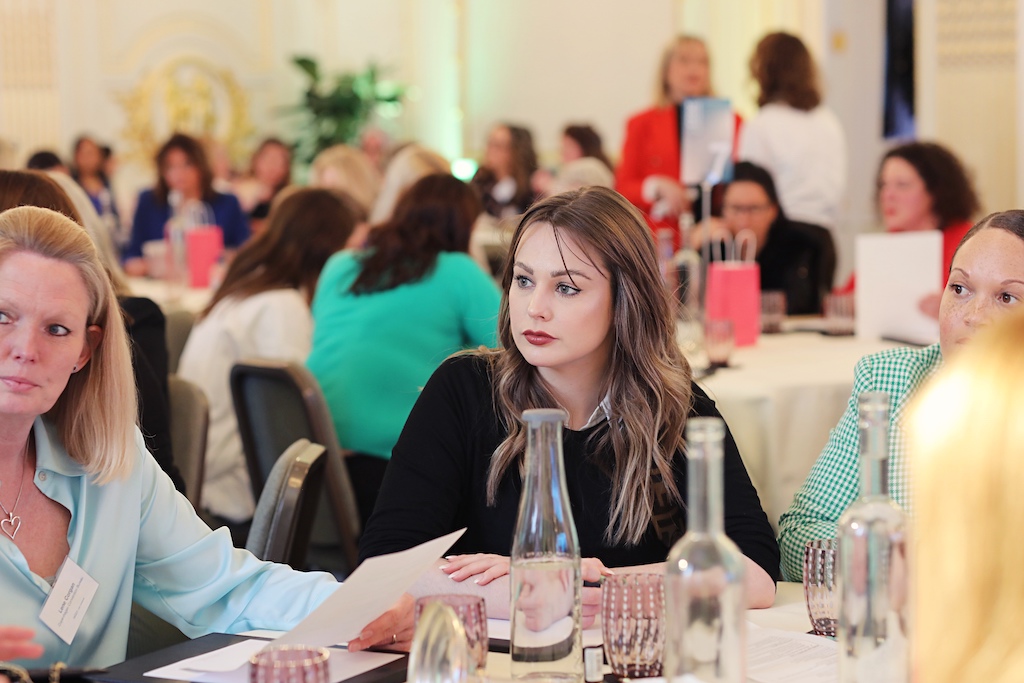PARTNER CONTENT
Dr Emma Abson PhD, Senior Lecturer (Events Management), Sheffield Hallam University, is carrying out a research study into ‘Women’s experiences of developing leadership careers in the event industry’ and shared some of the early findings at micebook’s International Women’s Day event on Monday in a session entitled ‘Leadership Unlocked’.
Abson, who was an event manager for many years before making the switch to academia, shared the motivation behind the study: “We know a lot about leadership in the hospitality and tourism industries, but we don’t know much about event leadership, and specifically women in event leadership, which given the industry is 75% female, is something I wanted to address.”
The study, which involves interviews with female leaders in a variety of roles in the events industry, is still ongoing so we are unable to release the findings, but Abson did share a few preliminary highlights to serve as discussion points for the session. The audience then broke into smaller groups to debate and find solutions.
The discussion points included:
*There are no clear pathways to leadership in the events industry
*Work-life balance in events is difficult to achieve due to the long working hours and highly pressurised environments (especially for women with children)
*There is a lack of support for women with children
*Women lead differently to men
*Men have more leadership opportunities and confidence
*The industry has a sexism problem, but women don’t seem to always recognise sexist occurrences as such.
One group, which focused on the sexism problem topic, agreed that it is still a problem in our industry and were surprised to hear that some women think sexism isn’t an issue. They felt that the men need to be involved in these conversations as well. “It’s all very well having discussions about stopping discrimination in the workplace and support women through menopause and other health problems, but unless we educate the men, nothing will change. One of our takeaways, is that when we are thinking internally of doing things in our business for women, for example mental health awareness days or roundtables about sexual discrimination in the workplace, we should bring men into the conversation (and not just the allies) and share what we are experiencing and what we need them to do, and how we can educate and support them to help us in that issue.”
Another group focused on the women leading differently to men topic but had the same solution. “We discussed how women are motivational, they build relationships, they are more adaptable, they take people on journeys, and we tend to have more empathy, whereas men tend to be a bit more transactional with the way they deal with people. We also talked about ageism, and how men tend to treat younger women even more different to women of a certain age. The solution discussed was the need to do better around boundaries. We need to put up our boundaries and make sure we stick to them, but we also need to educate men, and take them on the journey and let them know why they need to do better.”
Abson said that while there is not a lot of data that shows that men and women lead differently, society tends to perceive leadership through a male lens, so its leadership is expressed using masculine traits, and women aren’t seen as leaders as often because they are expressing feminine traits. “Women feel like they must lead with compassion and empathy because that is what we expect of them. There is nothing wrong with leading that way, but what we need to do is change the dialogue from thinking that the typical male leadership model is the right one and think why shouldn’t lead with compassion and empathy?”
Another group also discussed the importance of setting boundaries. “Next time you are asked to do something that outside the boundaries that appropriate for you, just say ‘that doesn’t work for me’. As females, we often feel the need to explain why, because I have school pick up or something else. We don’t need to do that. We just need to say that doesn’t work for me, end of sentence and move on. And as one of the other tables said, it’s important to remember that not everyone’s boundaries are the same. Those boundaries are going to be different for different people, so we need to communicate our boundaries both upwards and downwards in our businesses and make sure everyone can respect each other from every angle.”
Daytime photos by Hiba Noor, with evening Photography by Baz Seal

